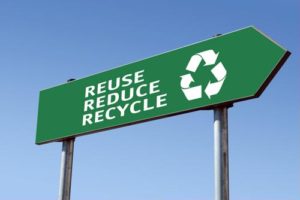
Food and Cosmetic Industries: At a time when only 14 percent of the approximately 78 million metric tons of plastic packaging produced worldwide annually is recycled. According to National Geographic, businesses are continuously taking steps to further enter into the “green” practice of creating sustainable packaging and labeling for their products.
Whether it is through biodegradable packaging itself or recycling-based labeling. Increasing numbers of food production and cosmetic companies in. The U.S. have committed to preparing their products for the shelves with similar initiatives in mind.
Sustainable Food and Beverage Packaging and Labeling Initiatives
In the beverage market, Coca-Cola’s “World Without Waste” proposal. For example is intend to help the company meet a goal of selling. Products with packaging made up of 50% recycled material by 2030.
Along with its “HybridBottle” and Dasani’s aluminum-bottled water, Coca-Cola’s sustainable initiatives include recycling-enhanced labeling, among others.
In Europe, more than a dozen European cosmetic companies have joined in on another green initiative: Sustainable Packaging Initiative for Cosmetics, started by L’Oreal. In the U.S., by contrast, major cosmetic companies are moving away from pressure-sensitive labeling. And toward UV screen printing, according to Alpha Packaging Director of Marketing Marny Bielefeldt.
Use of Matte Labeling as a Sustainable Practice
Despite the prevalence of the “no-label-look,” there is still a place for paper labeling in the cosmetics industry, according to Cosmetics Business. This is especially true for lower-tier enterprises – according to Avery Dennison. Business Development Manager Monica Gross, who compared certain fragrance products. Usage of paper or matte to “create an impression of artisanal, even handmade, authenticity”.
Matte label usage and sales are predicted to rise over coming years, according to a matte labels market. Transparency Market Research report and forecast covering the years between 2016 and 2024; along with conveying a more artisan aesthetic to customers. Matte labels absorb more ink than glossed ones and leave a smaller carbon footprint.
Between 2016 and 2024, North America is predicted to take up a “significant” share of the matte label market. As a result of a “reviving economy” and growing customer preference for quality household products and cosmetics.
Some businesses in the clothing industry are also moving toward sustainable labeling. and packaging. Colovos, for example, produces all of its main labels and tags from recycled or biodegradable materials.
As brands move toward selling their products using green. Clean and sustainable packaging and labeling processes. There is boundless convenience in having high-quality label printers. To view label printer selections, browse Argon Technology’s U.S site or Canadian webpage.
 Visit our US Store
Visit our US Store Visit our Canadian Store
Visit our Canadian Store US Customers
US Customers
 US Customers
US Customers Follow us on facebook
Follow us on facebook Follow us on twitter
Follow us on twitter Follow us on linkedin
Follow us on linkedin Follow us on youtube
Follow us on youtube Follow us on google+
Follow us on google+ Pinterest
Pinterest
Leave a Reply